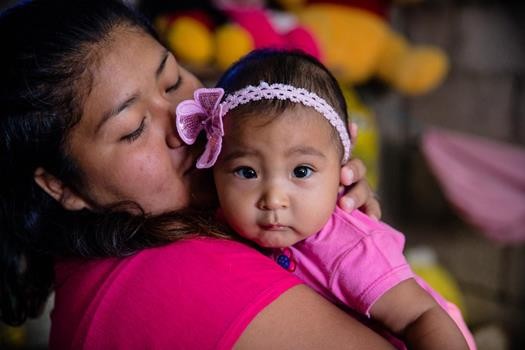17% girls become mothers before 19

By A Staff Reporter
Kathmandu Jan. 7: Nepal has made progress in most areas related to children, like health and education, but challenges are still in nutrition, child marriage, sexual violence and child trafficking, a report said.
The report released by the National Human Rights Commission (NHRC) here on Monday said despite some progress in child rights sector, children in Nepal were widely discriminated and this resulted in child labour, and denial of education and health facilities.
As per the report, the actual enrolment rate of both the girls and boys has progressively improved in recent year. However, the enrolment rate of children in secondary level is only 43.7 per cent, which is not satisfactory, it said.
“In Nepal, 17 per cent of girls aged 15 to 19 years are mothers or pregnant. So the risk of a child giving birth to a child is very high,” the report read.
The report further stated that around 28 per cent schools of the country still lacked separate toilets for girls and boys, while only 15 per cent of adolescent girls had access to the sanitary pads.
Due to lack of nutrition, still 1.1 million children in Nepal are short stature, 290, 000 children are underweight and 1.3 million children are suffering from Vitamin A, iron and other nutritious deficiencies, the report added.
“Approximately, 37 per cent of children aged 5-17 years are involved in child labour, because of which children are deprived of right to life, right to education, right to nutrition and health, right to development and other rights,” the report read.
According to the report, children who got married before 18 and are involved in child labour are found lying about their age, while these adolescents got married before 18.
The report further added that around 1.3 million children in Nepal were at the risk of child marriage.
In the last fiscal year, total 33,332 people were rescued from the Nepal-India border of 11 districts, of them 14 per cent were children, the report added.
Chairman of the National Human Rights Commission, Anup Raj Sharma said the government should introduce a special policy to control the school dropout rate.
“The government has enacted many good laws, but it has failed to implement them. Many constitutional rights are yet to bring in execution,” said Sharma.
Mohana Ansari, member of the National Human Rights Commission (NHRC), said the government had enacted new Acts related to children by amending the old laws. However, the act couldn’t reach grassroots level, she added.
Despite, the national and international laws on child rights, the government has failed to build required mechanism to implement these rights in reality, she added.
Children belonging to Madhesi, Dalit, Muslim , indigenous and minority groups are more vulnerable in all aspects, she added.
Since the household chores were not included in a child labour, many children were deprived of their rights to education, said Ansari.
Recent News

Do not make expressions casting dout on election: EC
14 Apr, 2022
CM Bhatta says may New Year 2079 BS inspire positive thinking
14 Apr, 2022
Three new cases, 44 recoveries in 24 hours
14 Apr, 2022
689 climbers of 84 teams so far acquire permits for climbing various peaks this spring season
14 Apr, 2022
How the rising cost of living crisis is impacting Nepal
14 Apr, 2022
US military confirms an interstellar meteor collided with Earth
14 Apr, 2022
Valneva Covid vaccine approved for use in UK
14 Apr, 2022
Chair Prachanda highlights need of unity among Maoist, Communist forces
14 Apr, 2022
Ranbir Kapoor and Alia Bhatt: Bollywood toasts star couple on wedding
14 Apr, 2022
President Bhandari confers decorations (Photo Feature)
14 Apr, 2022











